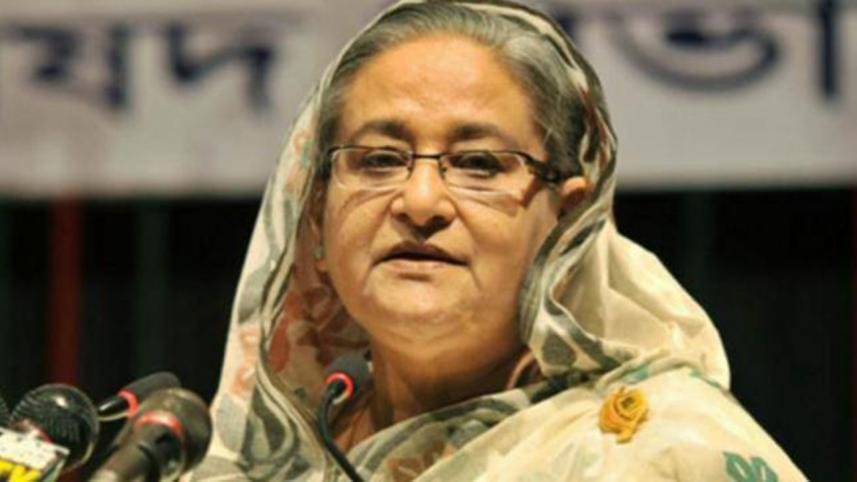ICT case: Hasina’s counsel seeks discharge

The state-appointed defence counsel for ousted prime minister Sheikh Hasina and former home minister Asaduzzaman Khan Kamal yesterday pleaded to the International Crimes Tribunal-1 to discharge his clients, saying that they are innocent and the charges brought against them are politically motivated.
While placing arguments on discharge petitions in the case filed over crimes against humanity during the July uprising against Hasina and her two top aides, he also said the charges brought against his clients were "false, fabricated and baseless".
"So, I want discharge of my clients from the liability of the case," Amir Hossain told the three-member tribunal.
This was opposed by Chief Prosecutor Tajul Islam, who termed it a flat denial.
Following arguments from both sides, the tribunal fixed July 10 for passing its order on whether to frame charges or discharge Hasina and Kamal.
The defence counsel for the other accused, former Inspector General of Police Chowdhury Abdullah Al-Mamun, neither filed any discharge petition for his client nor made any argument.
Hasina and her two top aides were charged with five counts of crimes against humanity on June 1, including murder, attempted murder, torture and use of lethal weapons, among others.
About the allegations about Hasina calling for the elimination of 'the descendants of Razakars', Hossain argued that she was in power for many years and if she had really intended to do so, she would have done it earlier.
"Since she never did that, why would she now order the killing of young boys?"
When pointed towards a phone conversation with Sheikh Fazle Noor Taposh, the former mayor of Dhaka South, in which Hasina instructed the students' killing, he argued that such a claim by the prosecution is not valid as they have no documentary evidence to support it.
Regarding the allegation that she ordered the killing of Abu Sayed, a university student in Rangpur, Hossain said: "There is no such statement or document among the materials submitted by the prosecution."
"Allegations involve the killing of six protesters and burning of their bodies in Ashulia and the killing of another six protesters in Chankharpool on August 5 are not applicable in her case as at the time of the incidents she was not in the country. As a superior authority, my client did not issue any such directives."
Due to jealousy against Hasina for constructing different mega projects like the metro rail, Padma bridge and Karnaphuli tunnel, the case has been filed against her, he said.
He also told the tribunal that the law enforcement agencies had acted within their responsibilities between July 14 and early August last year to protect public life and property.
He also told the court that many police officers were killed but the formal charge did not mention anything about that. So, the case is one-sided.
"There are instances of people getting injured during movements in many countries. But prosecution of such a nature, as seen here, is rare and politically motivated."
The defence also rejected the charges of conspiracy, instigation, facilitation, abetment and complicity in inhumane acts, calling them "inapplicable" to the accused.
"The July movement was a political confrontation. It was not as systematic and widespread as alleged. My clients have been charged under the 1973 Act enacted to try war criminals, so they deserve to be discharged as a matter of right."
In response, Tajul said the defence had presented factual inaccuracies in their discharge petition.
"The 1973 Act is applicable to try crimes against humanity, and the movement was indeed systematic and widespread. We have already submitted evidence in support of this. We urge the tribunal to formally frame charges against the accused based on the evidence and legal grounds already placed," he said.
Earlier, the prosecution placed arguments and pleaded to frame a charge against the accused.
Meanwhile, the tribunal yesterday extended the deadline by two months for completing investigations into two cases filed over atrocities committed in Tejgaon and Chattogram during the July uprising.



 For all latest news, follow The Daily Star's Google News channel.
For all latest news, follow The Daily Star's Google News channel.
Comments